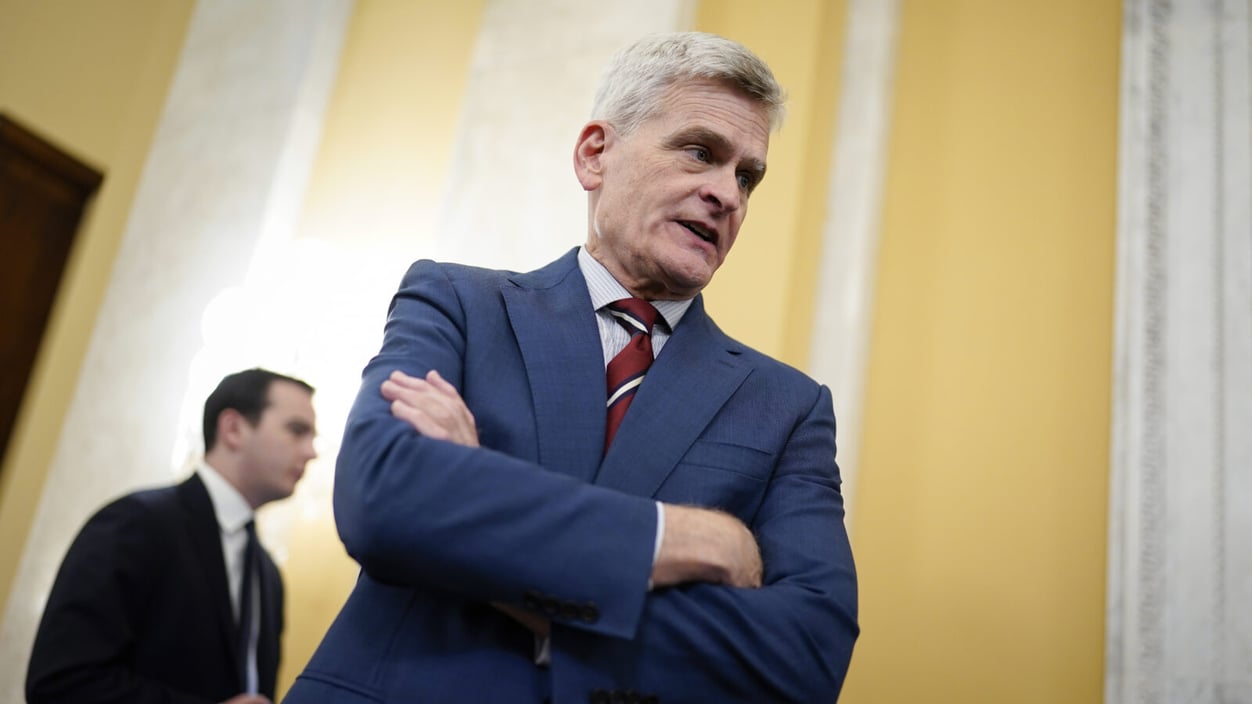ninfluence
Pharma's new favorite senator

J. Scott Applewhite/AP
Just a week after Sen. Bill Cassidy became the top Republican on the Senate health committee, he received a flood of cash from pharmaceutical companies that I spotted in the federal disclosures.
Over the course of two days in February, four PhRMA board members and a PhRMA executive all donated to Cassidy's campaign. He isn't up for re-election until 2026.
There's plenty of policy coming through the Senate health committee of interest to drug makers, including a markup of legislation regulating pharmacy benefit managers and a hearing with insulin CEOs — featuring one executive who also donated to Cassidy. Get the full breakdown in my new story out this morning with my colleague, Sarah Owermohle.
Drug pricing
An eyebrow-raising Capitol hallway quote
My co-author Sarah caught up with Senate health committee Chair Bernie Sanders (I-Vt.) on Wednesday, and he offered an outline of his plan to address health care costs. One part in particular caught our attention (emphasis is added):
"This committee is going to make the lowering of prescription drug prices substantially a major priority. And we're gonna hit it in a number of ways. We're going to deal with PBMs. We're going to deal with pharma. We're going to deal with transparency. We're going to deal with international pricing. And so this is a good start. And I'm glad that we have bipartisan support for a bill that will bring transparency, more transparency to PBMs and lower the price of insulin."
That comment hearkens back to a Trump-era proposal to tie Medicare payments to international drug prices that prompted panic in the pharmaceutical industry.
Sarah then asked him later in the day to clarify what he meant, and he said: "There's a number of ways to tackle the issue. One way is to say simply — this was part of what Trump was talking about — 'Okay… we'll take a look at five or six countries, comparable countries around the world, European countries, Canada and Japan, see what they're paying for a prescription drug X, and pay the same price." We'll let you interpret how you wish.
And, much like Schumer, he's singing about camaraderie on insulin bills: "I think there's going to be an effort to bring bills together to make sure that insulin is affordable to all," he said.
capitol hill
Two big things from the Energy & Commerce hearing yesterday
Rep. Anna Eshoo (D-Calif.) grilled CMS Administrator Chiquita Brooks-LaSure about the agency's plans for Leqembi, a new Alzheimer's drug that the FDA could give full approval in July. Eshoo pressed CMS to release more guidance to help providers set up patient registries so they're ready if Leqembi is approved.
She also asked whether CMS has ever required a patient registry for a fully approved drug before — Brooks-LaSure said it had been used before, but didn't name any specific examples. (Leqembi is up for full approval in July. Right now, it has a special accelerated approval status like the controversial Aduhelm, which greatly restricts its Medicare coverage).
Brooks-LaSure said the agency plans to publish information to help patients understand how to access Leqembi if it's fully approved.
While few members mentioned the highly controversial site-neutral policies that Republicans on the House Energy & Commerce Committee unveiled last week, Rep. Lori Trahan (D-Mass.) offered a clue to how Democrats are viewing the policy. She noted that some rural, cancer, and children's hospitals get some exemptions from site-neutral policies, and asked about balancing the need to balance safety-net providers' financial stability while still lowering Medicare costs.


No comments